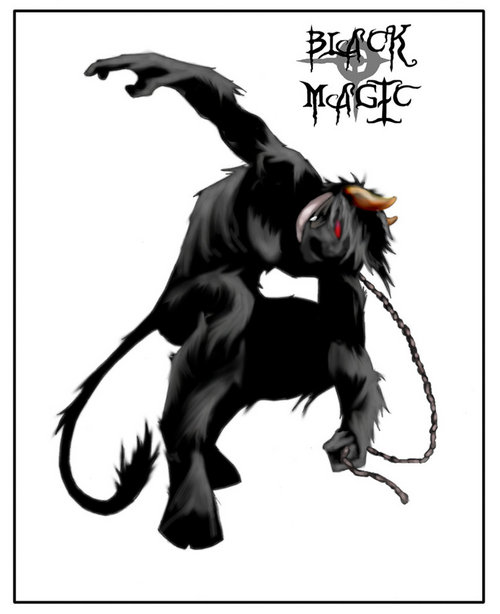Jamaicans, back in the day, had a deep fear of ghosts. Consequently, there were many beliefs and traditions having to do with the dead, much of which seem to have been lost, if my family and those of friends and acquaintances is anything to go by. My father, for instance, regaled us with ghost stories, including encounters he purportedly had. I failed in that department with my own children whom, I believe, have only a vague notion that people fear things such as ghosts.
A few historical documents recount Jamaican beliefs about the dead. Two of the more informative are History of Jamaica by W.J. Gardner, published in 1873; and especially “Folklore of the Negroes of Jamaica,” published in a 1904 edition of Folklore. Folklore described itself as “a quarterly review of myth, tradition, institution, & custom.”
Those of us who were used to hearing ghost stories know that Jamaicans believe there are different kinds of ghosts and spirits. All ghosts are referred to as duppies, but they come in various shades and forms.
Different types of ghosts (duppies)

Perhaps the most well-known, and possibly the most feared, was the rolling calf, the spirit of a dead person too wicked for heaven and thus destined to walk the earth in a restless state. The rolling calf lives in constant fear of moonlight, but is a most dastardly creature. Because of its malevolence, it has a chain around its neck that makes a noise to warn living humans of its presence.
The three-foot horse is frightening. Though it has only three legs, it gallops faster than any living horse. If it meets a human, it blows its breath on the person and kills that person. The whooping boy, another ghost, rides the three-foot horse. Whooping boys love woodlands and other forested areas and it is in these areas where they are particularly mischievous and deadly.
Another feared ghost was the river mumma, similar to a mermaid. They haunt rivers, streams and lakes. These ghosts or spirits will lead you to a watery death as they are accused of drowning those hapless souls who swim wherever they are. As a child, I heard whispers of the river mumma at Moneague Lake in St. Ann, a place where only the ignorant and foolish would dare to swim or even try to fish.
There’s another type of ghost, called Abner, which cries like a baby out in the field at night to lure some unsuspecting person in its path. The person who succumbs can come to great harm. One sad story in July this year was of a three-year-old girl who was killed in the parish of St. Ann in the north of Jamaica. A newspaper recounted:
There are reports that residents heard a child crying in the night, but did not think it was a result of the child being harmed. “People hear the crying and think ah duppy a cry,” one woman said.

I’ve never heard of long-bubby Susan until I read Folklore. This ghost has very long and large breasts reaching to the ground that it throws over its shoulders in case of an attack.
Ghosts can take animal forms. Never attack a green lizard, a creature that can grow to more than six inches long, some to nearly a foot. It is possibly a ghost. Heard stories of persons throwing stones (almost always a young boy), at green lizards being struck dead or becoming very ill and insensible. My mother once recounted “being dreamed” by a person whom she knew to have died. Apparently, my eldest brother, when he was quite young, threw stones at a green lizard one day. My mother said the dead woman told her in the dream that my brother had stoned her while she was sunning herself. The only reason she had not done him harm was because he was the son of my mother.
A large moth, what Jamaicans call a “bat,” could be a ghost. Get it out of your house if it flies in at night, but don’t kill it. As children, we were made to chase quite a few out.
The behavior of animals can signal the presence of ghosts. Dogs howling can mean a ghost is around or someone is about to die. Dogs barking constantly and in a frenzy at what appears to be nothing means a ghost is present. As a child, I witnessed, more than once, our dogs Rhygin, Spider and Rover barking and darting back and forth in the yard, obviously riled up and angry, usually at dusk or the early part of the night, and we saw nothing or no one that should be the source of the excitement.
Guinea chicks are good to have around, as their excited and loud clucking and squawking in unison means some spirit is present. These birds supposedly help to keep spirits away.
Getting rid of ghosts
One can be rid of ghosts in various ways. Marking a large X on your house is supposed to keep some spirits out. Throwing salt outdoors, at or near your doorway, was believed to have checked the advance of ghosts.
Turning your clothes inside out (wearing it on the “wrong side” as we say in Jamaica), can stop a ghost from following you. Wearing red at night may help as Jamaican duppies do not like that color. When entering one’s house at night, walk through the door backwards to prevent ghosts from following you inside.
According to the 1904 edition of Folklore, one can shoot a duppy if one loads “the gun with salt, blue-stone and sulphur, in addition to the powder and shot.” If one shoots a ghost successfully, the evidence will be seen in the form of an animal, usually a dead lizard.
There is a belief that using the name “Jesus Christ” will run a ghost. Using “God” alone is not sufficient.
At the same time, do not do certain things at night as it may attract ghosts. Never, ever, roast a sweet potato when it starts to get dark. Its strong, sweet smell will attract spirits. Do not throw water out in a splashing fashion, it may hit a ghost and bring harm to you. Instead, pour it out with the vessel tipped over close to the ground.
At the time of death and burial, certain precautions were taken to prevent the dead from haunting people and places, and from being restless. Some of these practices have largely died out as funeral homes now handle the dead in Jamaica whereas, up to perhaps 50 years ago, some rural families dealt with the dead themselves.
One custom that has never gone out of practice, though, is to sprinkle rum around the graveside prior to, during or after digging. This is an absolute must. No self-respecting gravedigger will undertake the task without pouring a libation of rum over and around the grave.
Another practice that I’ve seen on occasion, but rarely, is the passing of little children over the coffin or casket of the deceased. Folklore showed that this is a longstanding custom:
If a person dies where there are little children, after the body is put into the coffin, they will lift up each little child, and calling him by name, pass him over the dead body. In the case of an adult he will put his hand upon the chest and say a few words. The common belief in this is, that the duppy will not hurt them.
It is whispered that widows and surviving female partners of some men place small clippings of their pubic hair in the casket or coffin to keep him at bay, to prevent him from returning to her. I, of course, cannot testify to this practice.
But other customs are likely to have drifted into nonpractice. Folklore reports that “when the coffin with the body is taken out, someone with a broom sweeps the house, casting all the refuse after it, saying he is sweeping out the dead.” Not sure how much that is still done.
W.J. Gardner, writing in 1873, said, “in covering up the grave the attendants often turned their backs to it and threw the earth in from between their legs. This was an infallible way of preventing the spirit of the departed from returning with them to their homes.” Having been to dozens of funerals in Jamaica, I’ve never seen this.
One doubts Jamaicans hold the dead in fear as their grand and great grand parents did. The dead are not as close as they used to be. Families no longer deal with dead bodies; funeral homes take care of that. People rarely walk at night and in the dark as they used to. Urbanization has killed off certain beliefs peculiar to rural life.
Because of increasing crime, I’ve heard Jamaicans say they now fear the living more than they fear the dead.
Eron Henry is author of Reverend Mother, a novel